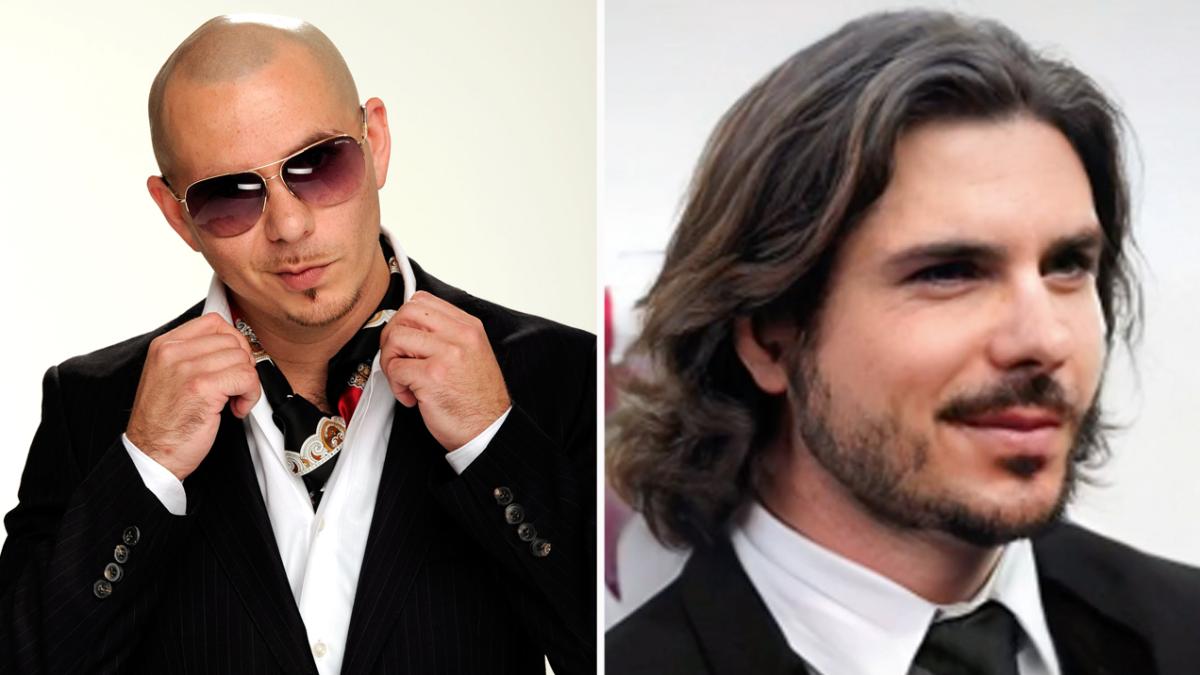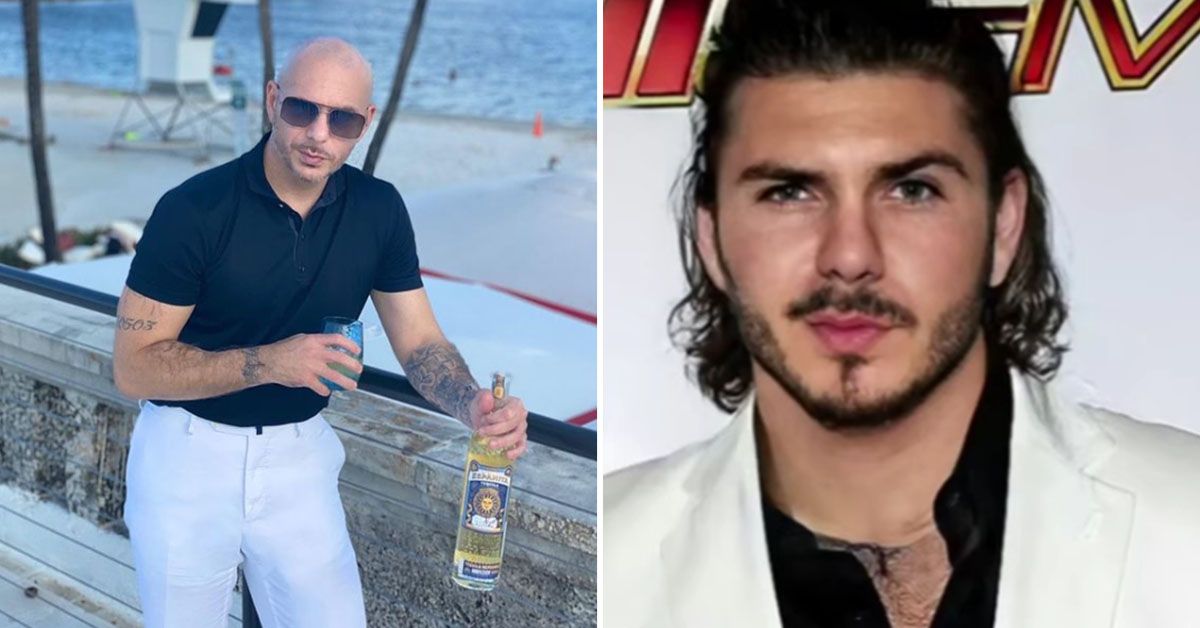Have you ever seen a pitbull with long, flowing hair? It may come as a surprise, but pitbulls actually do have hair! While they are commonly known for their short, smooth coats, there are some pitbulls that possess a genetic variation that results in longer, shaggier hair. These unique pitbulls with long hair are often referred to as “woolly pitbulls” and they are becoming increasingly popular among dog enthusiasts.
The origins of long-haired pitbulls can be traced back to a genetic mutation that occurred within the pitbull breed. While the majority of pitbulls have short, stiff hair that requires minimal grooming, the woolly pitbulls have a longer and softer coat. However, it’s important to note that not all pitbulls with long hair are woolly pitbulls – there are other breeds that have been crossed with pitbulls to produce this variation. Whether you prefer the classic short coat or are intrigued by the allure of a long-haired pitbull, there is a solution for every dog lover’s preference.

When Pitbull Has Hair? Exploring the Different Coat Types of Pitbulls
Hairless Pitbulls: The Unique and Rare Breed
Pitbulls are known for their strong and muscular builds, but did you know that there is a rare and unique type of Pitbull that is hairless? Hairless Pitbulls, also known as Xoloitzcuintli or Xolos, are a fascinating breed that captivates the attention of dog enthusiasts around the world. These dogs have a distinct appearance, with smooth and hairless skin that gives them a truly unique look.
One of the advantages of having a hairless Pitbull is their hypoallergenic nature. For individuals who suffer from allergies to pet dander, hairless Pitbulls can be a great choice as their lack of hair reduces the amount of allergens that they shed. Additionally, their smooth skin makes grooming a breeze, as you won’t have to worry about regular brushing or frequent trips to the groomer. However, it’s important to note that hairless Pitbulls are more susceptible to sunburn and extreme temperatures, so extra care should be taken to protect their skin.
Hairless Pitbulls also have a close-knit and friendly temperament, making them wonderful companions and family pets. They are known for their loyalty, intelligence, and sociability. These dogs bond strongly with their owners and thrive on attention and affection. Despite their size and strength, hairless Pitbulls have a gentle nature and are great with children, making them a suitable choice for families.
Short-Haired Pitbulls: The Classic Look
Short-haired Pitbulls, also referred to as American Pitbull Terriers, are one of the most common and recognizable breeds among Pitbull enthusiasts. These dogs have a smooth and shiny coat that requires minimal grooming. Their short hair not only gives them a sleek and athletic appearance but also protects them from extreme weather conditions.
Owners of short-haired Pitbulls enjoy the benefits of their low-maintenance coats. With regular brushing to remove loose hair and periodic baths to keep them clean and fresh, short-haired Pitbulls are relatively easy to care for in terms of grooming. Their coats also shed less compared to other breeds, making them suitable for individuals who prefer a cleaner living environment.
Furthermore, short-haired Pitbulls have a high level of energy and a playful and affectionate nature. They thrive on physical activity and mental stimulation, which makes them excellent candidates for various dog sports and activities. Their intelligence and eagerness to please their owners make them highly trainable, but it’s important to note that they require consistent training and socialization from a young age to ensure proper behavior.
Long-Haired Pitbulls: The Uncommon and Majestic Variety
While long-haired Pitbulls are not as common as their hairless or short-haired counterparts, they possess a majestic beauty that sets them apart. These Pitbulls have a longer and thicker coat that creates a striking and elegant look. Their long hair can come in various colors and patterns, adding to their charm and allure.
One of the advantages of owning a long-haired Pitbull is the added protection that their coat offers against sunburn, extreme temperatures, and other environmental factors. The longer hair acts as a natural barrier, shielding their skin from potential harm. However, it’s important to note that the long hair requires regular grooming and maintenance to prevent matting and tangling. Brushing their coats a few times a week and regular trips to the groomer will help keep their fur in top condition.
Long-haired Pitbulls are known for their affectionate and loyal nature. They bond closely with their families and are great with children and other pets when properly socialized. However, it’s important to provide them with ample exercise and mental stimulation to prevent boredom and restlessness. Regular walks, playtime, and interactive toys are essential for their overall well-being.
Common Questions About Pitbull Coat Types
Can a Pitbull’s Coat Type Change Over Time?
No, a Pitbull’s coat type does not change over time. The type of coat a Pitbull has is determined by their genetics. Hairless, short-haired, and long-haired Pitbulls are distinct breed variations but genetically remain the same throughout their lives. It’s important to thoroughly research and familiarize yourself with the specific coat type before bringing a Pitbull into your home to ensure that you can meet their grooming and care needs.
Are Hairless Pitbulls More Prone to Skin Issues?
Hairless Pitbulls may be more susceptible to certain skin issues compared to other coat types. Their lack of hair does not provide the same level of protection against sun exposure, extreme temperatures, and environmental elements. As a result, hairless Pitbulls may be prone to sunburn, dryness, and skin irritations. It’s crucial to provide them with proper sun protection and moisturizing skincare products specifically formulated for their sensitive skin.
How Can I Keep My Pitbull’s Coat Healthy and Shiny?
Regardless of the coat type, there are several key steps you can take to maintain your Pitbull’s coat health and shine. Regular grooming is essential, including brushing to remove loose hair and prevent matting, periodic baths using dog-friendly shampoo and conditioner, and routine visits to the groomer if necessary. Providing a balanced and nutritious diet, regular exercise, and proper hydration also contribute to overall coat health. Additionally, consulting with a veterinarian and following their recommendations for specific coat care products and routines can help ensure optimal coat condition.
Conclusion:
In conclusion, Pitbulls can have various coat types, each with its own unique characteristics and care requirements. Hairless Pitbulls are a rare and hypoallergenic breed, while short-haired Pitbulls are known for their low maintenance and athletic appearance. Long-haired Pitbulls, although less common, possess a majestic beauty that requires regular grooming and maintenance. Regardless of the coat type, Pitbulls are loyal, affectionate, and intelligent dogs that make wonderful companions for individuals and families alike. Understanding the specific needs of each coat type is crucial for providing proper care and ensuring the overall health and well-being of these amazing dogs.
Key Takeaways: When Pitbull has Hair?
- Pitbulls are naturally short-haired dogs.
- There are rare instances where a Pitbull may have longer hair due to genetic mutations.
- Long-haired Pitbulls require regular grooming and maintenance.
- Long-haired Pitbulls may experience more shedding than their short-haired counterparts.
- Long-haired Pitbulls still possess the same temperament and characteristics as short-haired ones.
Frequently Asked Questions
Welcome to our FAQ section where we answer common questions about pitbulls and their hair. Whether you’re a pitbull owner or simply curious, we’ve got you covered. Read on to find out more!
Q: How often do pitbulls have hair?
A: Pitbulls, like all dogs, have hair all the time. As mammals, they naturally grow hair. However, pitbulls have short and dense fur that sheds minimally compared to other breeds. Their hair growth is continuous, but it may vary depending on factors such as seasons and individual genetics. Overall, pitbulls are known for their sleek coats that require relatively low maintenance.
So, to answer your question, pitbulls have hair all the time; it’s just that their fur is short and doesn’t shed excessively.
Q: Can pitbulls have long hair?
A: While pitbulls typically have short hair, it is possible for them to have long hair due to genetic variations or mixed breeding. However, long-haired pitbulls are relatively rare compared to their short-haired counterparts. If you come across a pitbull with long hair, it is important to provide them with regular grooming and maintenance to keep their coat healthy. This may include brushing, trimming, and occasional visits to a professional groomer.
Remember, long hair in pitbulls is not the norm, so if you see one, it’s quite special!
Q: Do pitbulls lose their hair during shedding season?
A: Pitbulls, like most dogs, do experience seasonal shedding. However, due to their short hair, the shedding process may not be as noticeable as it is with longer-haired breeds. Pitbulls shed throughout the year, but they tend to have two major shedding seasons: spring and fall. During these times, you may see an increase in loose hair, but it can be managed effectively with regular brushing and grooming. If you’re concerned about excessive shedding, consult with a veterinarian to rule out any underlying health issues.
So, yes, pitbulls do lose their hair during shedding season, but it may be less apparent compared to other breeds.
Q: Can pitbulls go bald?
A: While it is rare for pitbulls to go bald, extreme cases of hair loss can occur due to various factors. Some possible causes of baldness in pitbulls include hormonal imbalances, allergies, skin infections, or underlying health conditions. If you notice your pitbull experiencing significant hair loss or bald patches, it’s crucial to consult with a veterinarian for a proper diagnosis and appropriate treatment. In most cases, proper care and treatment can help the hair grow back.
Remember, baldness in pitbulls is uncommon and often indicative of an underlying health issue that requires attention.
Q: Do pitbulls need regular haircuts?
A: Generally, pitbulls do not require regular haircuts like some long-haired breeds. Their short hair naturally stays at a manageable length without much intervention. However, regular grooming practices such as brushing, bathing, and nail trimming are essential to maintain a healthy coat. It’s also important to check and clean their ears regularly to prevent infections. If your pitbull’s hair starts becoming excessively long or unkempt, it may be a sign of an underlying issue, and a visit to the veterinarian is recommended.
So, while pitbulls may not need frequent haircuts, regular grooming practices are still necessary for their overall well-being.

Why we DON’T LIKE Pitbulls
Summary
So, in summary, pitbulls actually have short hair by nature. It’s part of their genetics. However, some pitbulls can have longer hair due to certain factors like mixed breeding or specific genetic variations.
It’s important to note that even if a pitbull has longer hair, they still have the same loving and friendly temperament as their short-haired counterparts. Hair length doesn’t determine their behavior or personality. So, whether your pitbull has short or long hair, they’ll still be a wonderful addition to your family.
